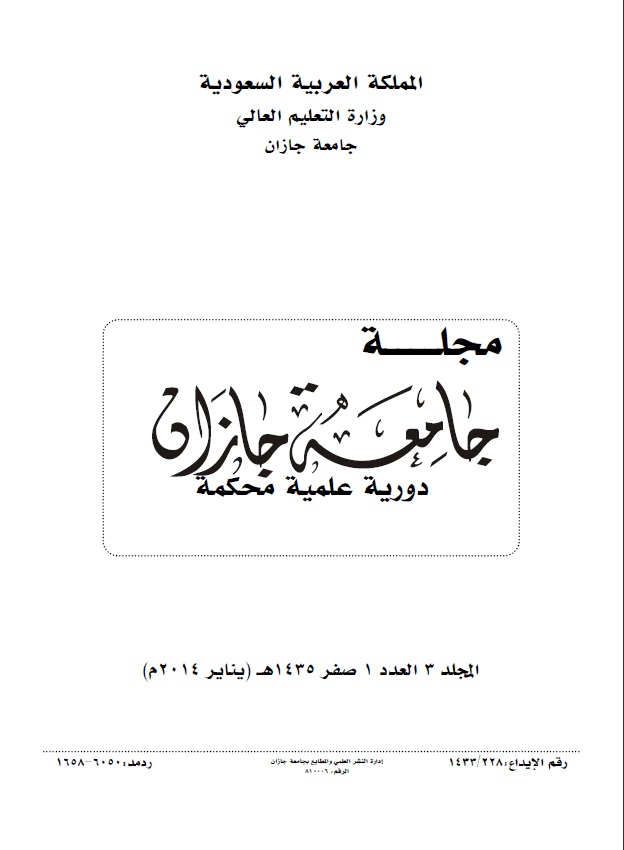The Predicative Value of the Preferred Learning Style according to Reid's Model for Measuring the Academic achievement among Students of Different Social Intelligence Enrolled in the Preparatory Year at Jazan University
Keywords:
Predictive value, Reid's model, academic achievement, social intelligenceAbstract
The aim of the present study is to identify the differences between the preferred learning styles to which students of high, moderate and low social intelligence are exposed while studying in the preparatory year at Jazan University. The study also aims not only to determine the extent of differences between the preferred learning styles according to the academic field of the students and their places of residences, but also to identify the interrelationship between the preferred learning styles and the academic achievement of the students who are classified according to their level of social intelligence. Finally, the present study also aims to show the relative contribution of the preferred learning styles in the prediction of the academic achievement among students of variable social intelligence who are enrolled to study in the preparatory year at Jazan University in the academic year (1433 1434). 180 students were selected as a sample of the study: 86 students from the Humanities departments and 94 students from the Scientific departments; the average of the age of the students was 20.05 years with 0.66 as a correlative deviation. In applying Reid's model on the sample, the researchers have come out with the following results:
- No significant statistical differences have been found between students of variable social intelligence who are exposed to the 10 types of the preferred learning styles while studying at the university level.
- No significant statistical differences have been found between the preferred learning styles with respect to academic specialization.
- Significant statistical differences have been found in the following learning styles and in accordance with the place of residence (auditory, analytical, intrapersonal and spatial), while no significant statistical differences have been found in the remaining types of learning styles.
- A significant and positive interrelationship has been found between the preferred learning style and academic achievement.
- There is a possibility of predicting the amount of academic achievement via the preferred learning style.
- The flexibly learning style is more effective in its prediction of academic achievement than the other types of learning styles.
Downloads
Downloads
-
PDF (Arabic)
52
10
Published
Issue
Section
License
Copyright (c) 2014 CC Attribution 4.0

This work is licensed under a Creative Commons Attribution 4.0 International License.





